“Exercise Is My Therapy!” Is It Really Though?
May is Mental Health Awareness Month, and it got me thinking a lot about the phrase “exercise is my therapy”. It’s something that I hear a lot of people say. Admittedly, I’m also someone who uses exercise as a way to cope with my emotions. I go on bike rides when I’m stressed. When I’m angry I bench press about it. I like to make up dances about my feelings.
I also have a history of being a compulsive exerciser. But once I started to deal with my own disordered tendencies with food and exercise, I realized something important. While exercise can be a useful coping tool, it’s not a substitute for therapy. Therapy is therapy. Exercise is exercise.
There’s a fine line between using it as a healthy way to deal with stress, and letting it become a compulsion that takes over your whole life.
Been there. Not fun. But once I started to take a look at my own relationship with exercise, I saw how this applied to my clients too. Because while most of the fitness industry is focused on “helping” people who are completely sedentary get active, there’s a whole group of people on the other end of the spectrum. And when it comes to exercise, we tend to overdo it. A lot. As in the best fitness goal for us probably to chill TF out.
I also learned that just as much as exercise isn’t a substitute for actual therapy, personal trainers are not therapists. And on my quest to find likeminded helping professionals who could help my clients with this stuff, I made friends with the amazing Dr. Paula Freedman. She’s the best. And she agreed to co-author this blog post with me and answer all the questions about exercise and mental health.
So let’s dig in. Feel free to use this article as it serves you. Skip around. Find the parts that apply to you. Or take a deep dive into the whole thing–Dr. Paula has some amazing knowledge bombs to drop!
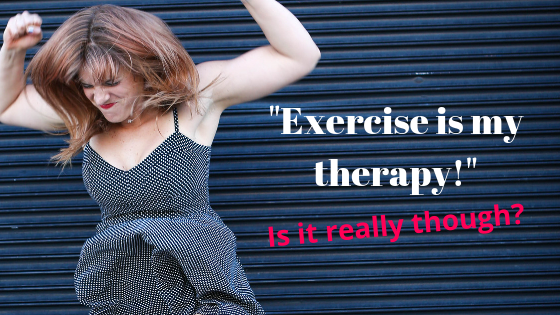
Q: What do you think when you hear people say “Exercise is my therapy”?
A: “It tells me they find it to be calming/relaxing or a helpful way to discharge energy. Lots of people use it as a way to focus their mind, or to distract themselves from life’s stressors. It’s a form of self-care and often can be a person’s go-to strategy to cope with stress and anxiety. I think a lot of activities can be “therapeutic,” but I don’t think there’s a substitute for actual therapy!”
Q: What are the known mental health benefits of regular exercise?
A: “Exercise increases our levels of dopamine, serotonin, and norepinephrine. The immediate release of these chemicals (especially serotonin and dopamine) leads to that “high” or enjoyable feelings after exercising. It can help you cope with anxiety, improve focus, memory, and attention, and sleep better.
Exercise often involves learning new skills or building upon previously learned skills. The more you learn and try new things, the more you strengthen the parts of your brain that house memory, focus, and coordination. This is all in addition to the physical benefits of exercise.”
Q: How can exercise potentially be a healthy coping mechanism?
A: “It can be a form of self-care, and taking care of your physical health can absolutely benefit mental health. It’s great to have an activity that allows you to connect with your body and get out of your head. Exercise can be fun and rewarding. Lots of people find that repetitive movement (like cycling or jogging) helps them gain clarity or work through a problem they’ve been trying to solve.”
Q: Can it potentially be harmful to use exercise as a way to cope with your emotions?
A: “I think anytime we turn something that’s designed to help us relax into something we “have to do,” it can be harmful. Believing you “need to” exercise in order to cope can lead you to become dependent on it. I like to say that the more coping tools you have in your toolbox, the more flexible you can be.
It’s also not always the best tool to choose in a given situation. If you’re sick, injured, or healing from a disordered relationship with exercise, it will likely do more harm than good. Coping tools aren’t one size fits all; you want to be able to choose what will be the most helpful for whatever you’re trying to cope with. Using exercise to avoid other tasks or avoid dealing with emotions won’t help in the long run.”
Q: How do you think you can tell if your “healthy” relationship with exercise has taken turn to an unhealthy place?
A: “Healthy is subjective. Each of us decides for ourselves whether or not certain behaviors or habits are serving us. I’d say if you find yourself:
- Panicking when you don’t have access to exercise.
- Forcing yourself to do it when you really could use a rest day or have other things to do.
- Sacrificing sleep.
- Pushing yourself to do more intense exercise than you truly enjoy.
- Ignoring your body’s cues telling you it’s getting run-down or injured.
- Buying into mental rules about what qualifies as “a real workout”.
- Feeling guilty for not exercising.
- Telling yourself you “have to” exercise to compensate for what you’ve eaten.
- Trying to sneak in more exercise without people finding out.
- Forcing yourself to exercise at all costs.
- Noticing that it interferes with your social life, work or school functioning, family life, health, or other important priorities.
These could all be signs that your relationship with exercise has become one with an addictive quality to it.”
(I couldn’t agree more!)
Q: Do you see a lot of exercise addiction in your practice?
A: “I see a lot of people who have problematic relationships with exercise. I’m hesitant to label something an “addiction,” but I absolutely see people with very disordered, compulsive relationships with exercise. I see it both in people who are dealing with eating disorders, and people who are anxious high-achievers.
I work with a lot of “Type A” personalities and what I like to call Recovering Perfectionists. Often, people treat exercise as a way of measuring whether they’ve been productive or successful enough. People also tend to use exercise as a way to feel in control. Especially when everything else in their daily life might feel chaotic and out of control. This is similar to people using food restriction as a way to feel in control.”
Q: What do you think causes people to become addicted to exercise?
A: “Okay, I have a lot to say about this one so bear with me! First, there’s the obvious answer of poor body image and the desire to change the shape and appearance of one’s body.
I also think it starts off well-intentioned for a lot of people, and is not always about changing one’s looks. After all, in our society we’re constantly inundated with messages about how “unhealthy” Americans are. People might be aware of the physical and mental health benefits of exercise, and think, “this is good for me,” or “I should be doing this” without exploring how much and what type of exercise is right for them. When someone is prone to all-or-nothing thinking, or likes structure and routine in their life, it can almost become like a ritual or a requirement.
People also hear about how it’s such a great coping skill and tell themselves that it’s necessary. They believe they simply can’t cope with stress unless they exercise. Or they prioritize it above other things like work or social life without realizing that it’s become imbalanced.
But if your workout regimen is causing you to miss out on things like relaxing on vacation or doing something fun with friends, that can take a toll on your quality of life.
It’s hard to recognize that something like going for a run might not always be the healthiest way to cope. When compared to something like drugs or alcohol it doesn’t seem like it could really be “harmful.”
For example, if someone is regularly engaging in things like drinking, drugs, or self-harm, people in their life might express concern or judgment. But when someone is exercising vigorously, they can get the opposite type of reinforcement. They get praised for being “healthy.” They might be told they’re motivating or people are envious of their discipline.
Maybe they lost weight or their body shape changed as a result of exercise. This of course gets praised all over the place by people living in diet culture. This “you’re so fit” validation can become somewhat addictive in itself. So a person might feel like having this identity as the “fit person” is their ticket to feeling like a worthwhile, lovable person. Of course, those beliefs are usually at the unconscious level. But they can be powerful driving forces in maintaining an unhealthy relationship with exercise.”
Q: What are your thoughts on fitness trackers?
A: “I don’t think fitness trackers help the situation. Anxiety can cause people to cling to external measures of success. For people who are prone to anxiety or perfectionism, fitness trackers disconnect them even further from internal cues. Step counts and activity rings are just suggestions. But when you treat them as requirements your behavior patterns can get pretty rigid.
I’ve worked with people who developed almost a form of OCD related to their FitBit or Apple Watch. They truly felt they could not go to bed at night until closing the rings or hitting their step goal. If they weren’t able to it would cause a full-on panic attack. If you’re having panic attacks about not getting a certain number of steps (which is arbitrary and set forth by someone who isn’t living in YOUR body), is that really “healthy” in the end?”
Q: What do you recommend for those who might not have the means to afford actual therapy?
A: “Workbooks are awesome, and there are some really great ones out there for about $8-$20 a pop. These are self-help books written by mental health professionals. They provide coping skills and strategies for managing all sorts of symptoms (depression, anxiety, trauma, disordered eating, chronic pain, etc.) They walk you through various exercises and often provide prompts for journaling and self-reflection. While they are not a replacement for therapy, workbooks are valuable resources when therapy is not accessible to you.”
(Side note, Dr. Paula has one of her own: The Addiction Recovery Workbook, available on Amazon and at Barnes & Noble! )
“We also live in a time where lots of great resources are available online. There are great social media accounts, blogs, podcasts, and articles readily available to help teach you strategies for healing. You can examine exercise behaviors in the same way you’d examine food or substance behaviors. So you can take an addiction or eating disorder recovery resource and apply skills you learn there to compulsive exercise.”
Q: Do you have any tips to get someone started on evaluating and healing their relationship to exercise?
A: “Ask yourself (honestly) about whether you have any rules around exercise. For example, I have to do X amount, X number of times per week. Or, I have to do X type of exercise when I eat certain foods. Or in order for something to “count” as exercise, it has to be [fill in the blank. . .HIIT? Cardio based?] Ask yourself where you learned these rules, and what would happen if you didn’t follow them
Try to move away from measurement related goals for exercise. Like needing to get X number of steps or calories on the fitness tracker. Instead establish non-aesthetic and non-weight related goals. Some examples:
- Being able to run a certain distance.
- Lifting something heavier.
- Working your way up to a fun yoga pose.
(I have a few more here too!) Research (by the folks at Beauty Redefined, among others) shows that people who exercise for non-aesthetic goals also have more positive body image.
Recognize if you’re shaming yourself into exercising, pushing yourself to exercise when you’re sore or tired, or pushing yourself to do a type of exercise you don’t actually enjoy. Ask yourself what would happen if you had more flexibility around exercising.”
Q: What do you recommend for people who want to start to let go of some of those compulsive behaviors around exercise?
A: “Start small. Maybe start by challenging yourself to take 1-2 days of rest per week. With any type of exposure work (intentionally exposing yourself to something you fear), you can either go all-in or slowly build up the hierarchy.
I find people are less intimidated by the hierarchy approach than getting flooded all at once. The scariest thing for someone might be not exercising at all. So they work their way up to being able to do that without panicking. But if someone is sick with an eating disorder or physical injuries they might need a complete break from exercise. Everyone is different and you should consult with a professional for help with all of this stuff.
Delay the urge. If you have the urge to exercise but also know you need rest, try making a deal with your brain. Say, “Okay, I’m not going to exercise now, I’ll go about my day and check in later on. If I still want to exercise, I can deal with it then. Often, once you get over the initial anxiety, you’re better able to resist the urge.
Feel into the sensations of your body when you have the urge to exercise but your body really needs rest. If you’re antsy, see what else you can do to cope with that. Maybe something mentally or intellectually stimulating. Some gentle stretching might help you get the blood flowing without pushing a sick or injured body.
Or try a guided body scan exercise to help you notice your bodily sensations without judgment. Often the restless urge to exercise is about escaping from uncomfortable or unwanted emotions. If you allow those to pass on their own, you can decide whether exercise would actually serve you right now.“
Whew! This is probably one of my most in depth blog posts to date, and I couldn’t have done it without the incredible Dr. Paula Freedman.
I had so many great takeaways from talking to her, but my biggest takeaway was this:
Exercise CAN be a valuable tool when it comes to taking care of your mental health. AND it shouldn’t be the only thing in your toolbox. A workout can absolutely boost your mood and help you deal with stress. But it’s not a substitute for actual therapy or mental health advice if that’s what you need.
You can learn more about Dr. Paula Freedman and how to work with her at https://www.humankindpsych.com/ or follow her on Instagram @mindful.drpaula.
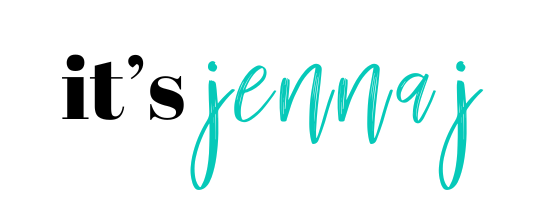
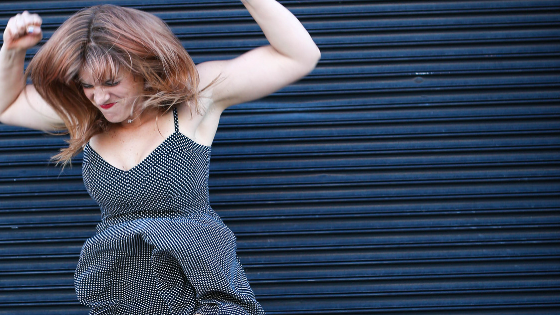
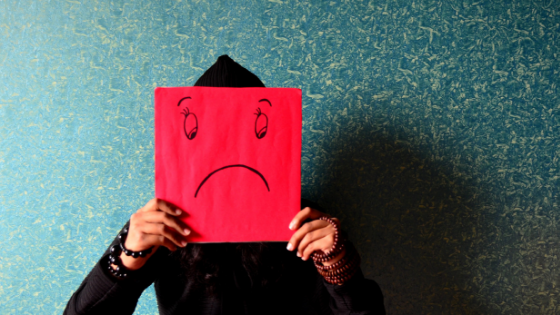

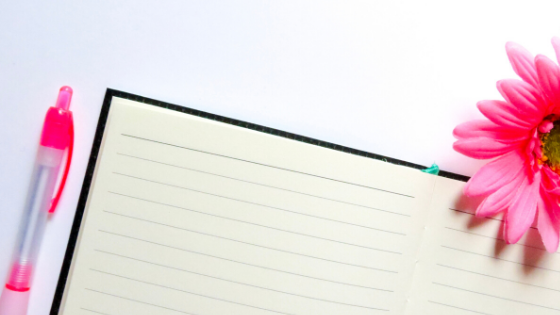

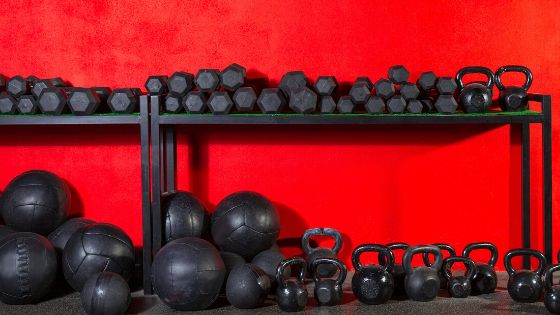

5 Comments
Comments are closed.